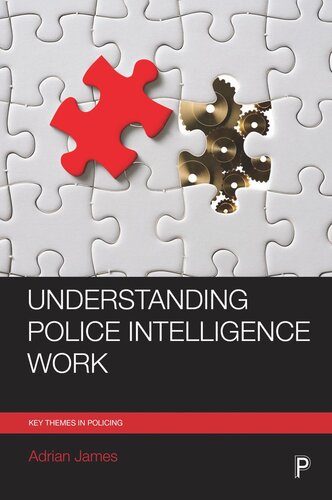

Most ebook files are in PDF format, so you can easily read them using various software such as Foxit Reader or directly on the Google Chrome browser.
Some ebook files are released by publishers in other formats such as .awz, .mobi, .epub, .fb2, etc. You may need to install specific software to read these formats on mobile/PC, such as Calibre.
Please read the tutorial at this link: https://ebookbell.com/faq
We offer FREE conversion to the popular formats you request; however, this may take some time. Therefore, right after payment, please email us, and we will try to provide the service as quickly as possible.
For some exceptional file formats or broken links (if any), please refrain from opening any disputes. Instead, email us first, and we will try to assist within a maximum of 6 hours.
EbookBell Team

0.0
0 reviewsAlthough police intelligence is becoming increasingly reliant on technology, it remains a human activity. This is the first textbook to offer a comprehensive and up-to-date account of police intelligence work based on current research, and to assess how intelligence may be used wisely and ethically to influence policing policy and practice. After explaining the basic tenets of intelligence, the author, who has extensive experience in the field, critically examines the development of intelligence structures and governance of contemporary intelligence collection. He goes on to assess the threats and opportunities to policing in the digital age, including the widespread use of social media and the emergence of ‘Big Data’. Part of a new series for students and practitioners designed to reflect the importance of incorporating ‘evidence based policing’ within the curriculum and practice, this much-needed textbook covers not only the technical aspects of intelligence work but also encourages reflexivity in practice.